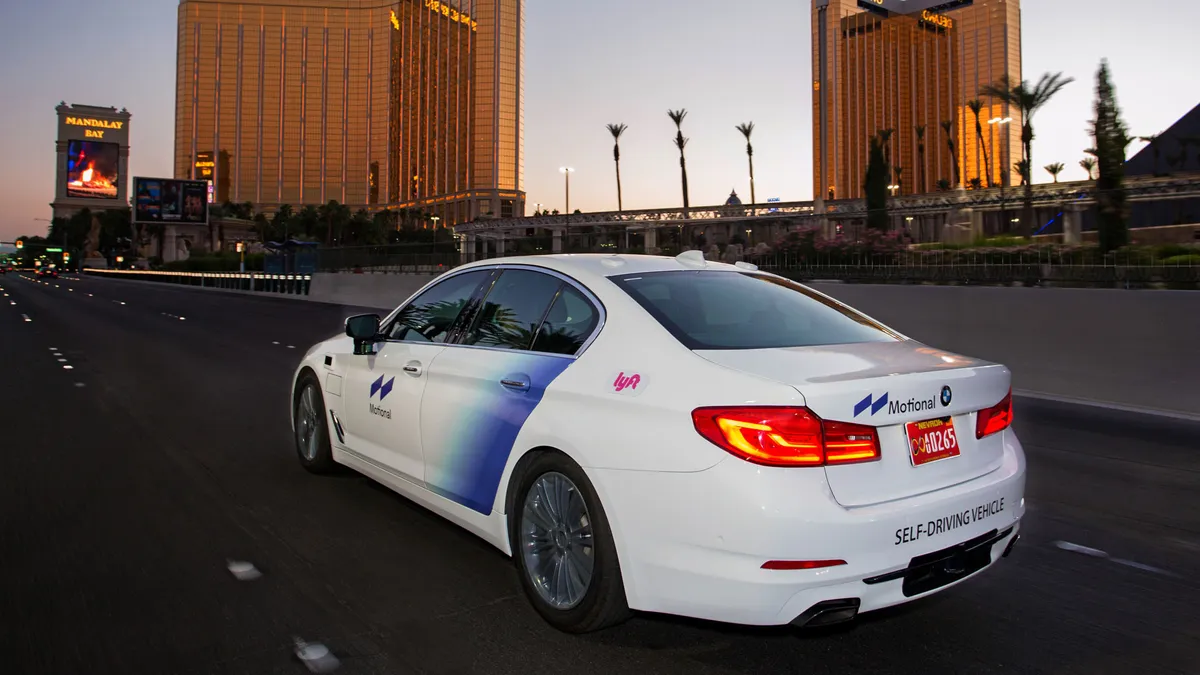Dive Brief:
- Toyota announced late Monday it agreed to buy Lyft's autonomous vehicle (AV) division, known as Level 5, in a deal worth $550 million.
- The acquisition marks the first for Toyota's new Woven Planet arm. It will bring together the scientists and software engineers from Woven Planet and Lyft into a new "dream team" of around 1,200 people, the companies said. Toyota also will use Lyft's system and fleet data in to make AVs commercially available quickly and safely.
- Under the terms of the deal, Lyft will receive $200 million in cash up front, and then receive the remaining $350 million in payments over a five-year period. It comes just a few months after rival Uber sold its self-driving arm to Aurora Innovation.
Dive Insight:
Ride-hailing companies have bet big on the commercialization of AVs, spending millions of dollars on their research, development and testing and talking up the potential of the technology to revolutionize the sector.
Indeed, only two months ago, on its Q4 2020 earnings call, Lyft Co-Founder and President John Zimmer said AVs were a crucial part of the company's "long-term vision" and will fuel "long-term growth," as Lyft looks to deploy them on its ride-hailing network. The acquisition by Toyota also comes on the heels of Lyft and Motional saying they would launch a robotaxi network by 2023 in select cities.
In public statements announcing this deal, Lyft officials said it would help their long-term aim of bringing AVs to market, especially as it helps them take advantage of the expertise of Toyota, an automaker that has big aims beyond traditional cars.
"As part of Woven Planet, we will be able to leverage exceptional automotive engineering expertise as well as the considerable resources of an iconic business, while continuing to move with the energy and speed of a start-up," Luc Vincent, Lyft's executive vice president for autonomous technology, said in a statement.
Like many automakers looking to diversify their offerings, Toyota has also showed off some big plans for the future. In early 2020, the company unveiled its plans to build a fully connected, prototype "city of the future" at the base of Mt. Fuji in Japan, known as Woven City. Toyota broke ground on that prototype in February, having revealed little else about the project in the intervening 12 months.
Toyota said Woven Planet is an expansion of its research arm and has a goal of "transforming how people live, work, and move through new innovations and investment in automated driving, robotics, smart cities, and more."
The financial burden of AV research may also have gotten too much for Lyft, which had a net loss in Q4 2020 of $458.2 million. Uber reportedly had been shopping its own AV division, known as the Advanced Technologies Group (ATG), for months before a sale, as that company similarly struggles to find a path to profitability.












